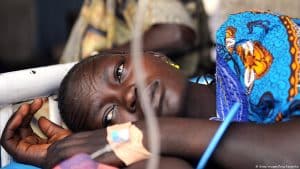MALARIA, A DEMON THAT FAILS TO GO AWAY
A story in the good book relates to how the disciples of Jesus Christ were unable to chase a demon away despite trying very hard. The problem of malaria control or eradication has acquired a similar dimension in Africa, generally. Bocar Kouyatè et al documented the frustrations in Burkinafaso, mirroring the experience of Nigerian experts.
EXTENT OF THE PROBLEM
Malaria constitutes Nigeria’s biggest health burden. Malaria in Nigeria accounted for 31.9% of global malaria deaths in 2021. That was about 200,000 deaths in one year from malaria alone in Nigeria. That comes to over 500 persons dying every day from malaria or more than 20 persons dying every hour from malaria in Nigeria in the period under review. Three other African countries contribute to making up the balance of how Africa accounts for half of the deaths caused by Malaria, worldwide.
Bad as Covid-19 is or banditry or kidnapping, they don’t come any close.
BRIEF HISTORY OF THE DISEASE
“Malaria is an ancient disease and references to what was almost certainly malaria occur in Chinese documents from about 2,700 BC, clay tablets from Mesopotamia in 2000 BC, Egyptian papyri from 1750 BC, and Hindu texts as far back as the 6th century BC.
For over 2500 years the idea that malaria fever was caused by miasmas rising from swamps persisted and it is widely held that the word Malaria, comes from Italian malaria meaning spoiled air”.
That was before the advent of microscopes and now microscopes have made us wiser. Now we know malaria is caused by a parasite and not by breathing bad air. And that the connection with the smelly marshes was the vector of the parasites (female Anopheles mosquito) which breeds in such places.
The parasite that causes malaria are 5 children of the same parents and are namely, Plasmodium Falciparum, P. Malaria, P. ovale, P. vivax and P. knowlesi. Let the scientists and doctors worry about the details.
SYMPTOMS AND SIGNS
The symptoms and signs of malaria are legions, some only known to the individual sufferer and, may indeed, not be in the standard textbooks! However, malaria is often characterized by fever associated with chills and rigours, headache and body pains, weakness, a feeling of being unwell, nausea/vomiting and loss of appetite. There may be abdominal discomfort. A host of other clinical manifestations may relate to the severity of the illness or complications thereof.
The consequential negative economic fallout is huge, dissipating about 25% of Nigeria’s GDP. Add that to the burden of malnutrition, infectious diseases, and climate change health impacts and you see the making of a disaster.
The management of malaria involves a multilevel approach. Clinical cases are treated as appropriate by the attending medical personnel even though most mild cases are treated outside the formal healthcare system.
A MOVING TARGET
In Chinua Achebe’s classic African novel, Things Fall Apart, Eleke the bird had decided that since hunters had learnt to shoot without missing, he too would fly without perching. This difficulty in dealing with the moving target is what continues to be in the way of defeating malaria. Drug Resistance is the medical appellation. Different drugs have been deployed at different times to treat malaria. The current approach involves the use of fixed drug combinations in the treatment of clinical cases.
WHERE THE COMPASS POINTS
Apart from continuing efforts at prevention which includes the use of insecticide-treated bed nets,
*medication of healthy persons temporarily travelling to malaria-endemic areas with the intention to prevent illness,
*medication of pregnant persons living in malaria-endemic areas in order to protect a pregnant woman and the unborn child,
*laboratory diagnosis must precede treatment and must be repeated after treatment in order to improve treatment outcomes and reduce the errors of presumptive diagnosis. Simply put, the policy is ‘test, treat, and test again’.
It is also important to keep in mind the needs of those at the extremes of age, the immuno-compromised, migrant populations and those in poor housing conditions who may be more vulnerable to malaria attack.
NOW THERE’S A VACCINE
With the arrival of the Malaria vaccine, the advantage has notched up a point. It is hoped that a focused and persistent push in the direction of prevention will help humanity arrive at the harbour called ‘Elimination of malaria’.
WHAT TO KEEP IN MIND
We may yet not be doing enough and may need to improve our efforts at combating this disease.
We encourage active participation in community protection and personalized care.







